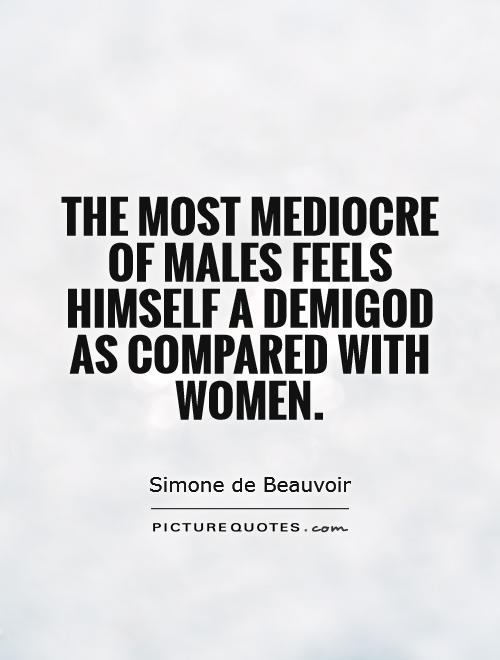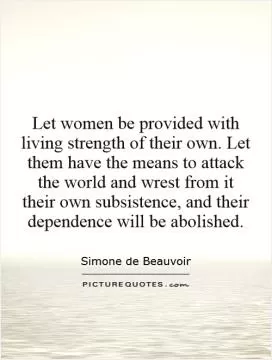The most mediocre of males feels himself a demigod as compared with women

The most mediocre of males feels himself a demigod as compared with women
In her seminal work, "The Second Sex," Simone de Beauvoir delves into the complex dynamics of gender relations and the ways in which women have been historically oppressed and marginalized by men. One of the key themes that Beauvoir explores is the idea that men, even the most mediocre of them, often perceive themselves as superior to women simply by virtue of their gender. This sense of superiority is deeply ingrained in patriarchal societies and has been perpetuated through centuries of social conditioning and cultural norms.Beauvoir argues that men have long been socialized to believe that they are inherently more valuable and important than women, and this belief is reinforced by the structures of power and privilege that exist in society. From a young age, boys are taught to assert their dominance and control over girls, and this mentality is carried into adulthood, where men continue to view themselves as superior to women in various aspects of life.
The idea that even the most mediocre of males can feel like a demigod compared to women speaks to the pervasive nature of sexism and misogyny in society. Men are often taught to believe that they are entitled to certain privileges and rights simply because of their gender, while women are expected to conform to traditional gender roles and expectations. This creates a power dynamic in which men are able to exert control and dominance over women, reinforcing their sense of superiority and entitlement.
Beauvoir's analysis of gender relations sheds light on the ways in which women have been systematically oppressed and devalued throughout history. By examining the ways in which men perceive themselves as demigods compared to women, Beauvoir exposes the underlying power dynamics that perpetuate gender inequality and discrimination. Through her work, Beauvoir challenges us to question and challenge the patriarchal structures that have long kept women in a subordinate position and to strive for a more equitable and just society for all genders.












 Friendship Quotes
Friendship Quotes Love Quotes
Love Quotes Life Quotes
Life Quotes Funny Quotes
Funny Quotes Motivational Quotes
Motivational Quotes Inspirational Quotes
Inspirational Quotes